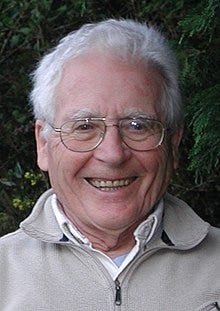Gaia
In Greek mythology Gaia — which means ‘earth’ or ‘life’ — is the goddess or personification of the Earth. She is the ancestral mother of all life. This concept has been used in our times by James Lovelock (who passed earlier this year at the age of 103), Lynn Margulis and Carl Sagan.
They saw the Earth, in its entirety, as being composed of “organs” such as forests, wetlands, inorganic materials and all forms of life (including human life). This way of looking at the Earth is analogous to seeing the human body as being made up organs such as the heart, sinews, blood vessels and millions of cells, each making a contribution to the overall person.
In the 1960s Lovelock described the modern Gaia as follows,
The Gaia Theory proposes that living organisms interact with their inorganic surroundings on Earth to form a synergistic and self-regulating, complex system that helps to maintain and perpetuate the conditions for life on the planet . . .
. . . the entire range of living matter on Earth, from whales to viruses, from oaks to algae, could be regarded as constituting a single living entity, capable of manipulating the Earth's atmosphere to suit its overall needs and endowed with faculties and powers far beyond those of its constituent parts.
Key items in this phrase are:
There is a relationship between all living creatures and with inorganic matter.
Gaia is a self-regulating system in which each component helps achieve the overall goal, even though it is not aware of the role that it is playing.
Therefore, although each part of Gaia acts individually to benefit itself, together all the parts create a self-sustaining system.
If the Earth is analogous to a living organism, then it will resist "diseases" that infect it. For example, if the CO2 concentration in the atmosphere increases then increased carbonate formation in the Earth's crust will slowly (emphasize the word 'slowly') reduce that concentration. Eventually those carbonates will be converted back into CO2 inside the Earth's crust and eventually ejected from volcanoes. The whole process is a slow (that word again) temperature control mechanism.
What humanity has done is to short-circuit these natural processes, particularly when it comes to CO2 emissions. We are now changing the climate much too quickly and too drastically for the Earth's "immune system" to adjust. Gaia is in overshoot.



